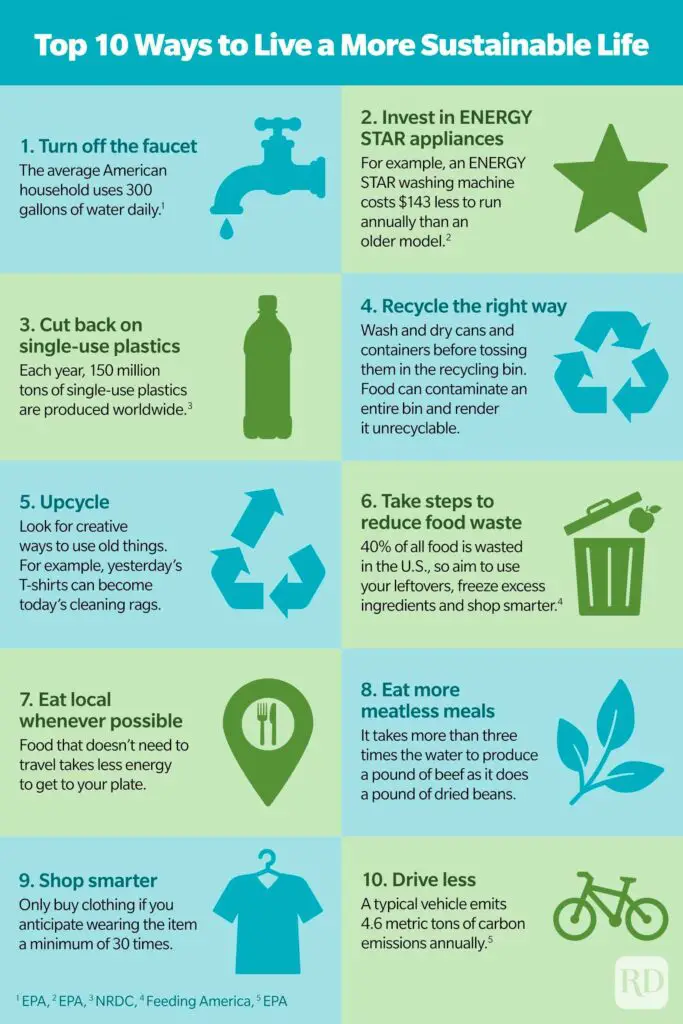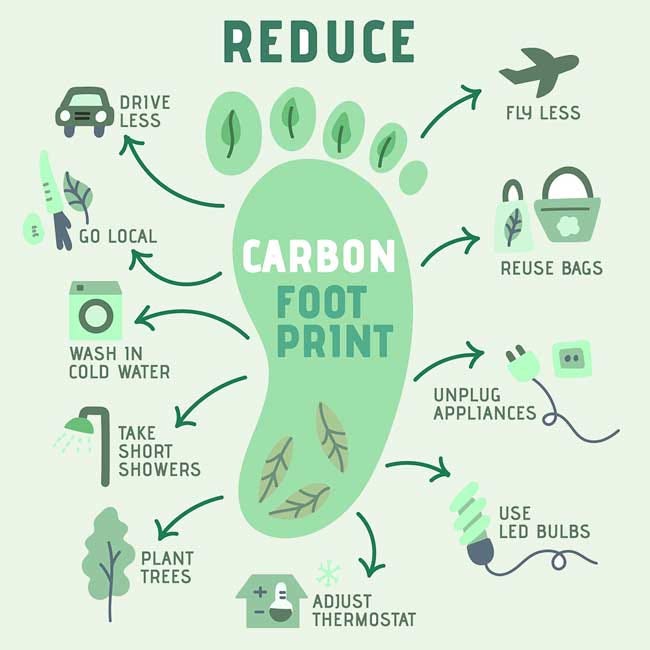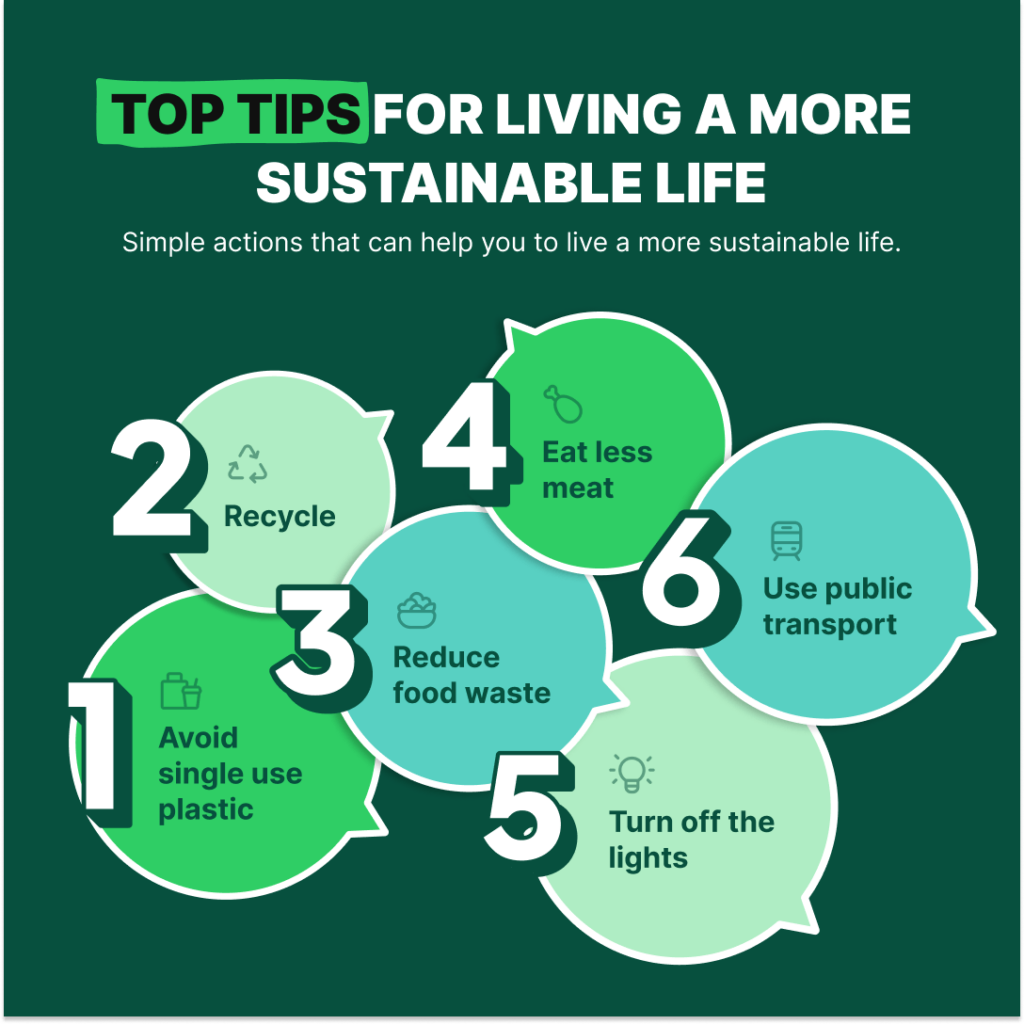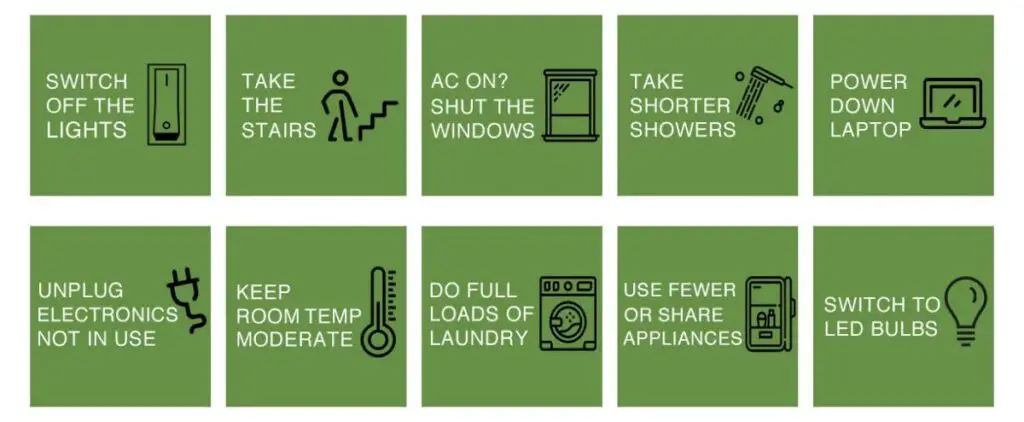Why Should You Reduce Your Waste Footprint?
Reducing your waste footprint is not only about helping the environment but also about making a positive impact on your health, your community, and future generations. By minimizing the waste you generate, you can save money, conserve resources, and reduce pollution. In this guide, we will explore different ways you can make sustainable choices in your daily life to reduce your waste footprint.

Understanding Your Waste Footprint
Before you can effectively reduce your waste footprint, it’s crucial to understand what makes up your waste. Your waste footprint consists of all the waste you produce, including food scraps, packaging materials, plastics, paper, and more. By identifying the main sources of waste in your daily life, you can pinpoint areas where you can make changes to reduce your impact on the environment.
Analyzing Your Daily Habits
Take a moment to think about your daily routine. What products do you use regularly? How do you dispose of them? By paying attention to your habits, you can start to see patterns in the type of waste you generate. For example, if you notice that you consume a lot of single-use plastics, you can look for alternatives that are more sustainable.
Tips for Reducing Waste in Your Home
Making small changes in your home can have a big impact on reducing your waste footprint. Here are some tips to help you get started:
Use Reusable Grocery Bags
Instead of opting for plastic bags at the store, bring your own reusable bags. Keep a few in your car or by the door so you remember to grab them before heading out to do your shopping. This simple switch can significantly reduce the amount of plastic waste you generate.
Switch to Reusable Water Bottles and Coffee Cups
Invest in a durable, reusable water bottle and coffee cup to avoid using single-use plastic bottles and cups. Not only will this reduce your waste footprint, but it can also save you money in the long run. Keep your reusable items with you when you’re on the go to avoid the need for disposable options.
Compost Food Scraps
Instead of throwing food scraps in the trash, consider starting a compost bin in your backyard or using a local composting service. Composting not only reduces the amount of waste that ends up in a landfill, but it also creates nutrient-rich soil that can be used in gardening.
Reduce Food Waste
Plan your meals ahead of time to avoid overbuying groceries that may go to waste. Store leftovers in reusable containers and incorporate them into future meals. By being mindful of your food consumption, you can minimize food waste and save money.
Use Eco-Friendly Cleaning Products
Switching to eco-friendly cleaning products can reduce the amount of harmful chemicals that end up in the environment. Look for cleaning products that are biodegradable and come in recyclable packaging to further reduce your waste footprint.
Sustainable Shopping Habits
Making sustainable choices while shopping is an essential part of reducing your waste footprint. By being mindful of the products you purchase, you can significantly decrease the amount of waste you generate. Here are some tips for shopping more sustainably:
Buy in Bulk
When possible, buy products in bulk to reduce packaging waste. Look for stores that offer bulk food items, toiletries, and cleaning products, and bring your own containers to fill up. Buying in bulk not only reduces waste but can also save you money in the long run.
Choose Products with Minimal Packaging
Opt for products that have minimal or recyclable packaging to reduce waste. Look for items that come in reusable or compostable packaging to further minimize your environmental impact. By selecting products with less packaging, you can help reduce the amount of waste that ends up in landfills.
Shop Second Hand
Consider shopping at thrift stores, consignment shops, or online resale platforms for clothing, furniture, and household items. Buying second-hand items not only reduces waste but also supports a circular economy where products are reused rather than discarded. You can find unique treasures at thrift stores while reducing your carbon footprint.
Repair and Repurpose Items
Instead of throwing away items that are broken or no longer in use, consider repairing them or repurposing them for a new function. By extending the life of products, you can reduce the amount of waste that ends up in landfills. Get creative with DIY projects and upcycling to give old items a new purpose.
Minimizing Single-Use Plastics
Single-use plastics are a major contributor to environmental pollution and can take hundreds of years to break down. By reducing your reliance on single-use plastics, you can significantly reduce your waste footprint. Here are some ways to minimize single-use plastics in your daily life:
Carry a Reusable Shopping Bag
Keep a reusable shopping bag handy for trips to the store to avoid using plastic bags. You can choose from a variety of materials, such as canvas, nylon, or recycled plastic, to suit your preferences. Some bags fold up compactly so you can easily stow them in your purse or backpack.
Say No to Plastic Straws
Skip the plastic straw when ordering drinks at restaurants or cafes. Carry a reusable metal or bamboo straw with you to use instead. Many establishments are starting to offer paper or compostable straws as alternatives to single-use plastics.
Use Reusable Containers
Bring your own containers to restaurants or food vendors when getting takeout or leftovers. Opt for stainless steel, glass, or silicone containers that you can wash and reuse. This prevents the need for disposable containers that contribute to waste.
Choose Products with Minimal Packaging
Select products that come in minimal or eco-friendly packaging to reduce your plastic waste. Look for items that are packaged in paper, cardboard, or compostable materials. Be mindful of the packaging when making purchasing decisions to minimize your environmental impact.

Managing Electronic Waste
Electronic waste, or e-waste, is a significant issue that poses environmental and health risks. Properly managing your electronic devices can help reduce the amount of e-waste that ends up in landfills. Here are some tips for managing electronic waste responsibly:
Recycle Old Electronics
When upgrading your electronic devices, recycle your old ones through designated e-waste recycling programs. Many electronics retailers offer recycling services for old devices, or you can find local e-waste recycling centers. By recycling your old electronics, you prevent hazardous materials from contaminating the environment.
Donate Working Electronics
If your old electronic devices are still in working condition, consider donating them to local charities, schools, or community organizations. Many people can benefit from used electronics, and it prevents them from being discarded prematurely. Make sure to erase your personal information before donating your devices.
Repair Devices When Possible
Instead of replacing electronic devices at the first sign of trouble, consider repairing them to extend their lifespan. Look for local repair shops or DIY repair resources online to fix minor issues. By repairing devices, you can reduce the demand for new electronics and decrease e-waste.
Sustainable Transportation Choices
Reducing your carbon footprint extends beyond your home habits to include your transportation choices. By opting for sustainable transportation options, you can minimize your contribution to air pollution and reduce your waste footprint. Here are some ways to make your transportation more sustainable:
Walk, Bike, or Use Public Transit
Whenever possible, choose walking, biking, or using public transportation over driving a car. These modes of transportation produce fewer emissions and help conserve energy. Consider biking to work, taking the bus, or carpooling with coworkers to reduce your environmental impact.
Drive Efficiently
If you need to drive, make sure to drive efficiently to minimize fuel consumption and emissions. Avoid aggressive driving, maintain a steady speed, and keep your tires properly inflated to improve fuel efficiency. Regular maintenance on your vehicle can also help reduce its environmental impact.
Consider Electric Vehicles
If you’re in the market for a new vehicle, consider purchasing an electric or hybrid vehicle to reduce your carbon footprint. Electric vehicles produce fewer emissions than traditional gasoline-powered cars and can help decrease air pollution. Check for incentives for electric vehicle purchases in your area to make the switch more affordable.

Supporting Sustainable Practices
Beyond making individual changes in your own life, you can also support businesses and organizations that prioritize sustainability. By choosing to support eco-friendly initiatives, you can encourage more businesses to adopt environmentally conscious practices. Here are some ways to support sustainable practices in your community:
Shop Local and Sustainable
Opt for locally grown produce, products, and services to support sustainable practices in your community. Local businesses often have smaller carbon footprints and prioritize environmentally friendly practices. By choosing to shop local, you can reduce transportation emissions and support your local economy.
Participate in Community Clean-Up Events
Get involved in community clean-up events to help keep your neighborhood clean and reduce litter pollution. Join local organizations, schools, or businesses that host clean-up activities in parks, beaches, or other public spaces. By volunteering your time, you can contribute to a cleaner environment for everyone.
Advocate for Policy Changes
Support policies that promote sustainability on a larger scale by contacting your local representatives and advocating for environmental initiatives. Stay informed about legislation related to waste reduction, clean energy, and conservation efforts, and voice your support for policies that benefit the planet. Your advocacy can help drive positive change in your community and beyond.
Conclusion
Reducing your waste footprint is a journey that involves making conscious choices in your daily life to minimize your impact on the environment. By implementing sustainable practices at home, while shopping, and in your transportation habits, you can significantly reduce the amount of waste you generate. Remember that every small change you make contributes to a healthier planet for future generations. By following the tips in this guide and encouraging others to join you in reducing waste, you can make a positive difference in the world. Start today and watch your waste footprint shrink as you embrace a more sustainable lifestyle.

